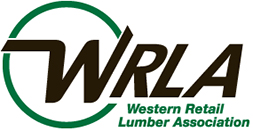Energetic About Events and Members: Jessica Cranmer, WRLA
 Imagine you’re newly hired to re-energize an association’s event calendar, and in particular their main trade show. Where do you start? Jessica Cranmer, trade show and events manager for the Western Retail Lumber Association, hit the books – and pored over five years’ worth of member and event survey data to draw out common themes and desires for WRLA’s event programming. She also called upon to her extensive experience organizing volunteers, supplies and registrations for a 3,500-person charity run in Winnipeg, as well as her knowledge of how to successfully motivate donors during fundraisers for The Heart and Stroke Foundation to bring WRLA’s events into the 21st century.
Imagine you’re newly hired to re-energize an association’s event calendar, and in particular their main trade show. Where do you start? Jessica Cranmer, trade show and events manager for the Western Retail Lumber Association, hit the books – and pored over five years’ worth of member and event survey data to draw out common themes and desires for WRLA’s event programming. She also called upon to her extensive experience organizing volunteers, supplies and registrations for a 3,500-person charity run in Winnipeg, as well as her knowledge of how to successfully motivate donors during fundraisers for The Heart and Stroke Foundation to bring WRLA’s events into the 21st century.
The results so far are a membership energized by new educational sessions and a fresh look for the networking events they enjoy each year. Jessica spoke with Association Adviser about how she’s transforming the WRLA event slate to meet members’ educational and professional growth needs.
Tell us about your professional background. How did you end up working as a trade show and events manager for WRLA?
I have two university diplomas; one in Arts and Cultural Management from the University of Winnipeg and the other in Fund Development, from the University of Waterloo. I had been at my previous position for just over three years and I was looking for a change. Liz Kovach, now president of the WRLA, and I had known one another for many years and had always kept in touch. She mentioned she was hiring and encouraged me to submit my resume for consideration When I learned more about the role, it excited me because it was something totally new and a big challenge for me.
Before WRLA, you worked for Heart and Stroke/Coeur and AVC as well as a couple of local hospital foundations as a community liaison and giving manager. What experiences or lessons learned at those organizations have you been able to apply to association work?
I worked for four and a half years with local hospital foundations and before that the Heart and Stroke Foundation. The skills gained by a Fund Development manager and Events Manager in the charitable sector are excellent tools for other jobs. For one, you are very used to working with little-to-no budget. So, building an event from the ground up, finding money, being creative and getting more for less are second nature to fundraisers. Secondly, understanding who you are communicating to, by that I mean, segmentation of your audience, is critical to a fundraiser – knowing how to talk to them, what will inspire them and motivate them is key. I’ve used that tool quite a bit as we work on how we speak to our different stakeholders: What information do they need? How they need to receive it, and how and when they should get that information?
Lastly, in terms of data, fundraisers use stats and data all the time. They segment and analyze. That skill lead me to spend the first two weeks of my job reading five years’ of post-event surveys, which is where I noticed themes that kept coming up. Looking at that data then cross checking with actual numbers led me to dispel some common themes that members had been repeating. It also allowed the team to have very frank discussions on where we were losing ground and where we could improve.
You’ve been at WRLA for a little less than a year. What has the transition been like? What has most surprised you about your role?
Overall the transition has been great but there certainly has been a learning curve. I think the thing that took me by surprise was the amount of knowledge I had to learn about contracts and negotiating contracts, especially when it came to our vendors. There were so many little clauses and details that I didn’t understand or were written in legal jargon. I was often left puzzled. I relied on the PCMA (Professional Convention Management Association) forums and trusted industry advisors to guide and teach me. I still don’t know everything but one year in I am a lot wiser!
 We spoke with WRLA’s Liz Kovach and Jessica Cranmer in April 2019 about the work they and their staff are doing to modernize WRLA’s events, industry talent pipeline, and government relations. Liz and Jessica talk about updating WRLA’s Buying Show with an educational track (it never had one until last year!), their student-oriented partnership with the Southern Alberta Institute of Technology, and their plan to create a strategy for advocating for the lumber industry at the federal level.
We spoke with WRLA’s Liz Kovach and Jessica Cranmer in April 2019 about the work they and their staff are doing to modernize WRLA’s events, industry talent pipeline, and government relations. Liz and Jessica talk about updating WRLA’s Buying Show with an educational track (it never had one until last year!), their student-oriented partnership with the Southern Alberta Institute of Technology, and their plan to create a strategy for advocating for the lumber industry at the federal level.Listen in if your association is considering becoming more involved in government relations!
Tell us about WRLA’s major events.
The WRLA has some wonderful events that help to connect our industry members to one another and to build relationships. Our largest is the annual Buying Show, hosting about 3,000 of our members over three days in a trade show atmosphere.
In addition, we host an annual golf tournament and several networking events in key western Canadian cities throughout the year. As we look to the future, we are exploring the idea of digital events and webinars to connect our members to one another and to information.
You’ve implemented several major changes to the format of WRLA’s annual Buying Show, including adding an educational component for the first time. What prompted you to make these changes? What results are you hoping to see in the short- and long-term from these show updates?
We were very excited to test out educational classrooms during the Buying Show. This was in direct response to our members’ feedback. They had been expressing that they wanted something else to do while at the show; an opportunity to learn or grow professionally in the classroom was an answer to that. We had excellent feedback and we hope we can grow this component over the next few years. I’d love to see the show expand so that there is a full day of just education followed by the show, and members can really make it a trip worthwhile for all their key employees.
In addition to working full-time at WRLA, you’re in a continuing education program at the University of Winnipeg. What are you studying, and what do you plan to do with your diploma?
I am currently studying project management through the University of Winnipeg’s continuing education department. I am working on it on a part-time basis and I am hoping to complete the program in about two years. Honestly, almost every aspect of project management can be applied to pretty much anything. It’s quite amazing at times. I am looking forward to using some of the tools I have learned in the Buying Show planning process – it is very handy.
You also work with a couple of local nonprofits – the Winnipeg Fire Paramedic Service (WFPS) Run and serve on the board of SISTARS. How do your experiences with those organizations inform your work at WRLA – or vice versa?
I am very lucky to be a part of two great organizations that give back to my community. The WFPS Run is entering its eighth year. We’ve given more than $400,000 to the Heart and Stroke Foundation and have expanded to also support some smaller grassroots charities in the past few years.
This run has taught me an enormous amount about large scale events; we host around 3,500 runners plus manage 500 volunteers. It truly takes a team to execute an event of this size. Everyone needs to understand their role and we work on a one-year rolling plan. Once we are done, we take a breath and start over again. The level of collaboration that it takes to host the event each year is incredible. I consider myself very fortunate to be a part of such a unique group.
SISTARS is a very small charity that owns a historical heritage home in one of the poorest neighbourhoods in Winnipeg. We are not only charged with the care and maintenance of this property, but we also built an extension on it to provide low-income families with affordable high-quality daycare for 60 children. The work SISTARS does in the neighbourhood has a direct impact on the quality of life of those that live there – it is very rewarding,
If you suddenly had a 50 percent increase in your budget, what would you spend it on?
I’d mainly focus on member experience enhancements, such as on-site booth renewal or improving the app to make it more interactive — allowing members to chat with one another. Host smaller get-togethers – maybe around a topic with a key facilitator. Perhaps engage with the government to host roundtables? The possibilities are endless.
In terms of your job, what keeps you up at night?
I am constantly thinking of new and innovative ways to re-energize the show and our members. I recognize that the industry and the world have changed a lot in the last 10 to 20 years, and the show needs to keep pace.

